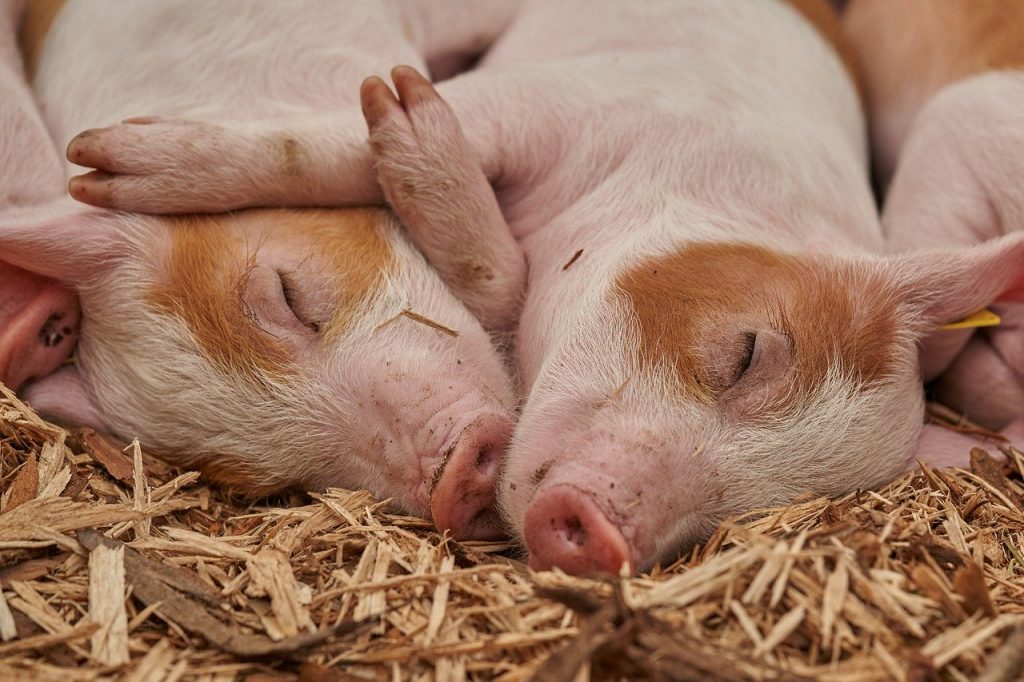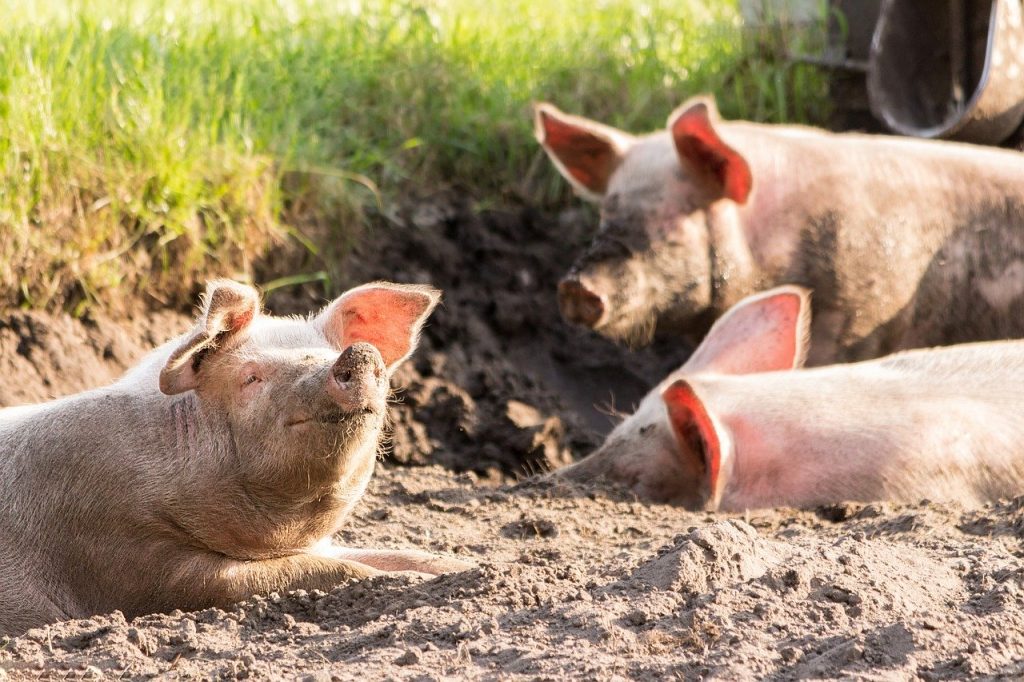The Pig In The German Language Posted by Constanze on Mar 16, 2020 in Language, Uncategorized
Guten Tag! The German language has some wonderfully quirky sayings, and sometimes, there is a theme to them. Today we’re looking at German sayings that all have one thing in common: A pig.
There are plenty of sayings in German that use the humble Schwein (pig) to make their point. Let’s get straight into them! (Note: das Schwein is the general term for pig, but die Sau – the same for a female pig – is also used).
The Pig In The German Language
Schwein haben
Literally ‘to have pig’, this means ‘to be lucky’. It is the same as saying Glück haben (das Glück – luck). If someone has a stroke of luck, you might say ‘Schwein gehabt!’, meaning ‘That was lucky!’. One theory is that this saying originated in the Mittelalter (Middle Ages), when das Ass (ace) in a deck of cards was called the Sau (swine), and whoever drew the Sau – the highest card- was lucky.
Der innere Schweinehund
Literally ‘the inner pig dog’, der innere Schweinehund refers to the lazy part of yourself that tells you to stay in bed, and that you don’t really need to go to the gym today, you can postpone everything until tomorrow, and so on. Do you have an innere Schweinehund?
Ich glaube, mein Schwein pfeift
Literally ‘I think, my pig whistles’, this is a way of exclaiming disbelief at a situation. It is similar to the English saying ‘Well, I never…!’ The reason you say ‘Ich glaube, mein Schwein pfeift’, is because pigs clearly cannot whistle (pfeifen – to whistle).
Wir haben zusammen noch keine Schweine gehütet
Literally ‘We haven’t kept any pigs together yet’, this funny phrase is how you’d tell someone ‘We don’t know each other well enough yet for that’. Say for example that someone wants to forego the formal way of speaking with you (using du instead of Sie), but you don’t believe it’s appropriate, for whatever reason. Then the justification would be this phrase – Wir haben zusammen noch keine Schweine gehütet. We don’t know each other well enough yet.
Don’t know yet about the formalities of Sie and du? Click here to read a post about it!
die Sau rauslassen
Literally ‘to let the sow out’, this phrase basically means to let loose, let your hair down and celebrate. When a party is on the cards after a long period of exams, you might say, ‘Heute Abend lassen wir die Sau raus!’ The implication is that things will get a bit wild- as they would if you let a pig run free!
die Sauklaue
Literally ‘sow’s claw’, this is the German word for ‘bad handwriting’. Due to the increase of digital typing and the decrease of pen-and-paper writing, many people’s handwriting is sloppy and messy, as they are out of practice. The German language likens this handwriting to a pig’s, as if a pig could write, their handwriting would probably be illegible. You would say someone ‘has’ a Sauklaue. Example: ‘Sie hat eine Sauklaue’ – ‘She has awful handwriting’.
Use of Schwein and Sau to replace other words, or to create emphasis
Sometimes the word Schwein is used in place of the word Mensch (person), for example, to express annoyance. Here are some examples:
Wahrscheinlich guckt wieder kein Schwein
Literally ‘Probably not one pig is watching’, this is an expression of mild frustration. You might use it for those times when you’re doing something really impressive, or trying to do a demonstration, but you’re guessing no one is paying attention.
Kein Schwein war da
Literally ‘No pig was there’, this is also used to express mild frustration. Say you’ve arranged a meeting that no one turns up to, then the next day someone asks how the meeting was. Your reply might be ‘Kein Schwein war da!’ (‘Not one single person was there!’).
Sometimes the word Sau is used in conjunction with other words to create emphasis. An English equivalent would be adding the word ‘bloody’ in front of the adjective:
Es ist kalt – It is cold
Es ist saukalt! – It is bloody cold!
Es ist schwer – It is hard
Es ist sauschwer! – It is bloody hard!
Even simpler uses
You could exclaim ‘Du Sau!’ if someone has made a mess (very informal – often used between parents and children, for example), or use the word as an insult: ‘Blöde Sau’ (‘Stupid pig’) is one of my mum’s favourite phrases when talking about a woman who’s annoyed her!
Note: As the word ‘Sau’ is the name for a female pig, calling someone ‘blöde Sau’ only really makes sense if it’s a woman it’s directed at/referring to.
So now you know several ways the word Schwein/Sau is used in the German language!
Bis bald (see you soon)!

Build vocabulary, practice pronunciation, and more with Transparent Language Online. Available anytime, anywhere, on any device.






Comments:
angela:
Good article!
Schwein is also an insult for men: “Was für ein Schwein!” (What a pig!) It is mostly used by women when a man behaved badly towards one of them like being rude or sexist or even cheating or leaving a pregnant women. It is in this context a less vulgar way of saying “What an assh*le” (do you filter swearwords in the comments?). There is a well-known (satiric) pop song about it by Die Ärzte- “Männer sind Schweine”.
Speaking of songs- also there is the popular song “Kein Schwein ruft mich an” by Max Raabe, about no one calling at all.
Liebe Grüße 🙂
Constanze:
@angela Thanks for these additions, Angela! I actually know of the song you mentioned, haha! Liebe Grüße
Cindy:
Your newsletters are so much fun and we are taught German that you won’t get from duolingo. Thanks so much.
Constanze:
@Cindy You’re welcome! Glad you find them helpful!